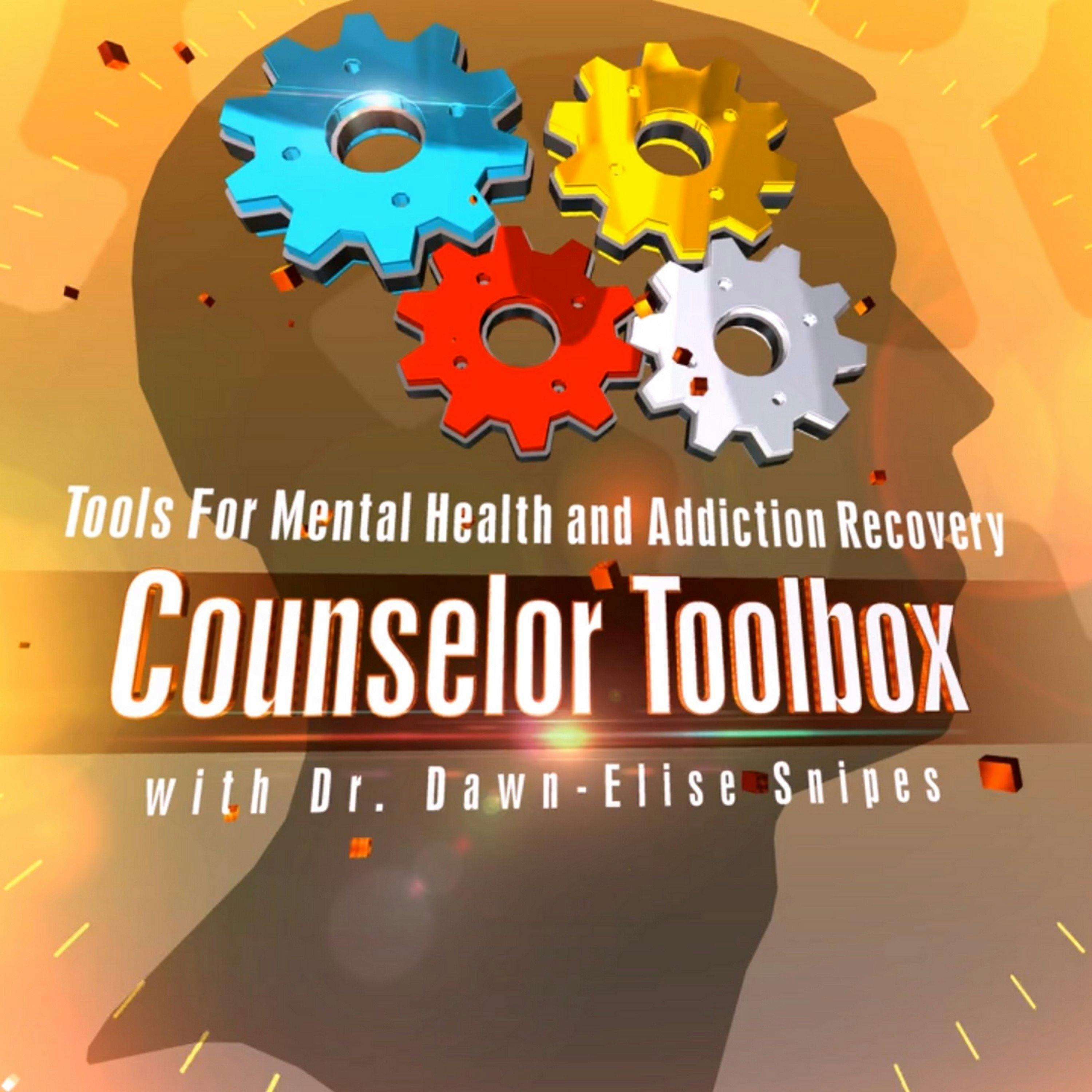

Counselor Toolbox Podcast with DocSnipes
Dr. Dawn-Elise Snipes
Counselors, coaches and sober companions help hundreds of thousands of people affected by Addictions and Mental Health issues each year. Learn about the current research and practical counseling tools to improve your skills and provide the best possible services. Counselor Toolbox targets counselors, coaches and companions, but can also provide useful counseling self-help tools for persons struggling with these issues and their loved ones. AllCEUs is an approved counseling continuing education provider for addiction and mental health counselors in most states. Counseling CEUs are available for each episode.
Episodes
Mentioned books

Aug 21, 2021 • 49min
Awe, Wonder and Empowerment
Awe, Wonder and Empowerment Learn more about your ad choices. Visit megaphone.fm/adchoices

Aug 18, 2021 • 47min
Identifying Strengths
Identifying Strengths Learn more about your ad choices. Visit megaphone.fm/adchoices

Aug 14, 2021 • 50min
Strengths Based Tools to Address Mood Disorders
Strengths Based Tools to Address Mood Disorders Learn more about your ad choices. Visit megaphone.fm/adchoices

Aug 7, 2021 • 46min
Listening without Defensiveness
Listening and Hearing
Set ground rules
Stop mind reading
Stop projecting
One person and one thing at a time
Use objective language
Have a safe-word and de-escalation plan if you feel like you are getting defensive or being attacked Learn more about your ad choices. Visit megaphone.fm/adchoices

Aug 6, 2021 • 44min
DMN and the Amygdala in Neuropsychiatric Issues
Discover how the default mode network interacts with key neural circuits in neuropsychiatric contexts, particularly under trauma. Explore the dynamics between networks linked to anxiety and depression, and learn how mindfulness can reshape neural connections. Dive into reflective analysis techniques like backward chaining, which reveal the neurological roots of mood disorders. This fascinating discussion reveals how neuroplasticity plays a critical role in emotional regulation and mental health.

Jul 28, 2021 • 14min
Characteristics of Effective Leaders_ Organizational Psychology
Learn more about your ad choices. Visit megaphone.fm/adchoices

Jul 28, 2021 • 16min
Sage Advice_ Tips for Happy Living
Learn more about your ad choices. Visit megaphone.fm/adchoices

Jul 28, 2021 • 18min
Taming Monkey Mind_ Quickstart Guide
Learn more about your ad choices. Visit megaphone.fm/adchoices

Jul 21, 2021 • 12min
Fs of the Stress Response
Learn more about your ad choices. Visit megaphone.fm/adchoices

Jul 21, 2021 • 7min
Optimism vs Toxic Positivity_ Counseling Techniques
Learn more about your ad choices. Visit megaphone.fm/adchoices


